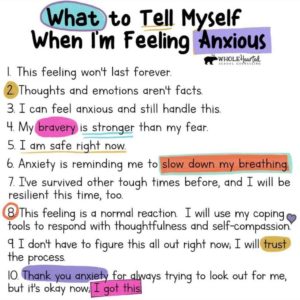Back to School Resources for Parents & Caregivers
As parents, caregivers, and people who care deeply about the well-being of young people, we are connected in our  efforts to make the best possible decisions for kids as the 2020-21 school year resumes this Fall. While it is clear that there is no one-size-fits-all pathway and that what works well for one family or community may not work at all for another, my hope is that in these days and weeks, we will give each other a lot of grace and support and maintain the positive assumption that we are all doing the best we can with the information and resources that we have.
efforts to make the best possible decisions for kids as the 2020-21 school year resumes this Fall. While it is clear that there is no one-size-fits-all pathway and that what works well for one family or community may not work at all for another, my hope is that in these days and weeks, we will give each other a lot of grace and support and maintain the positive assumption that we are all doing the best we can with the information and resources that we have.
.
In the space that follows, I am sharing my own personal, curated collection of videos, posts and resources that I have found most helpful when it comes to thinking through safeguarding kids’ emotional, social, and mental health as they return to school in September.
.
RECOMMENDED VIDEOS:
Pediatrician gives advice about sending kids back to school in viral video
Spoiler Alert: “The decision that you make about school is the right decision. That’s it. Each decision is imperfect….How you choose to think about the decision that you make will make it right.”
Classroom Job Assignments for this School Year
As you’ll see as soon as you open this link, this video was made to get a laugh…but as with most good humor, it’s funny because of the grains of truth it contains. Please have a laugh at the video, then read my more serious request below:
https://www.facebook.com/gerrybrooksprin/videos/612243813027724/UzpfSTYxNzM1NjU4ODoxMDE1NzUwOTQ3MzQzMTU4OQ/
A looming concern for me is how to extend the culture of kindness that Swain works so hard to create amidst the inevitable anxiety and apprehension that many students will carry in with them upon their return to classrooms and peer groups. While it would be understandable for a well-meaning young person to back away in fear from a classmate who sneezes, to loudly point out someone who forgets to put their mask back on after a meal, or to spread the news that “So-and-So” got sent home this morning because he had a fever,” these fear-based behaviors will be perceived as hurtful and will create a school climate of isolation and fear, when what we all are working so hard for is to create conditions of safety and inclusion. We also want to make sure that students don’t repeat concerns they may have heard caregivers discuss, such as “So-and-so’s parent works in a hospital so they might have the virus” or even “He/she traveled to [country/state with a high incidence of COVID-19] so we shouldn’t play with him/her.”
I ask all parents & caregivers to have loving conversations with your child(ren) prior to their return to school in which you plan for how to keep themselves safe (social distancing, wearing masks, etc) while simultaneously expressing concern and compassion–rather than fear or even contempt–for others.
With forethought and practice, I know we can help kids get their wording right. As faculty, we will be using consistent positive & nurturing language to remind students how to care for each other upon the return to school.
.
PRACTICING MINDFULNESS
The Power of One Breath (by GoZen)
This is such an uncertain time in all of our lives, filled with worries, anxieties, and concerns about health, safety, security and well-being. Now, more than ever, being able to manage stressful thoughts and control uncomfortable feelings is key for adults and kids alike. During the school year, social-emotional skills such as mindfulness, stress management, problem-solving, and maintaining a positive mindset are taught and practiced regularly. Skills like mindful breathing–the most efficient and effective method for calming an anxious, agitated brain–are easy to practice at home. Studies are clear that the more mindful breathing is practiced, the more effective it is for calming worries and helping people feel emotionally regulated. I highly recommend free apps like Calm and Insight Timer and love these videos (listed above) for kids.
.
RECOMMENDED POSTS:
Answers to FAQ’s About Anxiety in Children and Adolescents
RECOMMENDED READ-A-LOUDS
A Little SPOT Stays Home: A Story About Viruses And Safe Distancing
The Classroom and the Quarantine: A Story About Coronavirus for Children

Leave a Reply